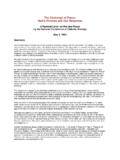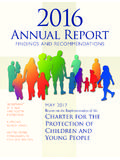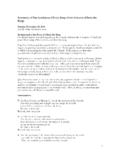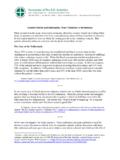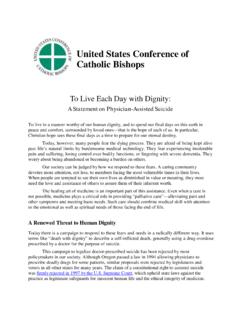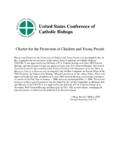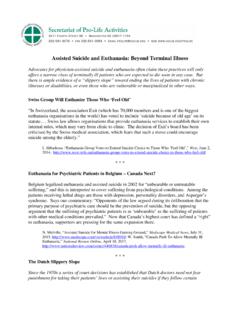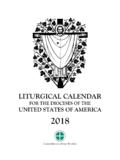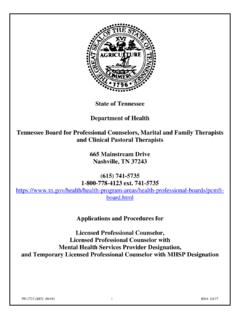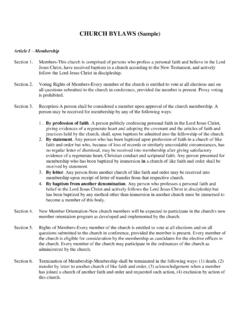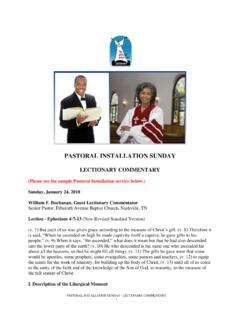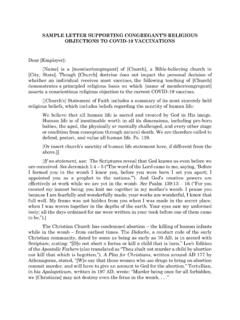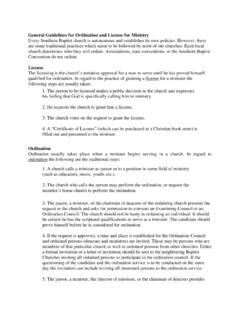Transcription of Racism and the Native American Experience - USCCB
1 Racism and the Native American Experience In the November 2018 pastoral letter Against Racism , Open Wide Our Hearts, the Catholic bishops of the United States urge all Catholics to acknowledge the scourge of Racism that still exists in our hearts, words, actions and institutions. Racism is rooted in a failure to acknowledge the human dignity of people of a different race. It does not reflect the inner life of God the Triune unity of three-in -one that we are called to imitate. Racism manifests itself in sinful individual actions, which contribute to structures of sin that perpetuate division and inequality.
2 The Native American Experience offers a particular illustration of Racism in history and today. When Europeans arrived on the shores of this country, they were often blind to the dignity of indigenous peoples. Colonial and later policies toward Native American communities were often violent, paternalistic, and directed toward the theft of Native American land. Native Americans were killed, imprisoned, sold into slavery, and raped. These policies decimated entire communities and brought about tragic death. The results were massive forced relocations of people as endured by the Cherokee people on the Trail of Tears and of the Navajo in the Long Walk.
3 Thousands of men, women, and children died during those forced removals. Schools and orphanages began Americanizing Native children by forcing them to abandon all facets of their culture, including their Native languages. The devastation caused by national policies of expansion and manifest destiny, fueled by racist attitudes, led to the near eradication of Native American peoples and their cultures. The effects of this evil remain visible in the great difficulties experienced by Native American communities today. Poverty, unemployment, inadequate health care, poor schools, the exploitation of natural Native Americans experienced deep wounds in the age of colonization and expansion, wounds that largely remain unhealed and strongly impact the generations to this day.
4 Bishops, Open Wide Our Hearts Racism and the Native American Experience Copyright 2018, United States Conference of Catholic Bishops. All rights reserved. This text may be reproduced in whole or in part without alteration for nonprofit educational use, provided such reprints are not sold and include this notice. Prayer from Pope John Paul II, Universal Prayer, March 12, 2000, copyright 2000, Libreria Editrice Vaticana (LEV), Vatican City. Used with permission. All rights reserved. All photos iStock Photo. Models used for illustrative purposes.
5 This resource and many others are available at resources, and disputes over land ownership in Native American communities are the legacy of these evils today. In Heritage and Hope: Evangelization in the United States (NCCB pastoral letter , 1990), the Catholic bishops wrote, As Church, we often have been unconscious and insensitive to the mistreatment of our Native American brothers and sisters and have at times reflected the Racism of the dominant culture of which we have been a part. All Catholics are called to give renewed attention to historical and present injustices resulting from Racism against Native Americans, better integrate the needs and contributions of Native Catholics, and work for greater justice for the descendants of the first Americans.
6 For More Information USCCB Subcommittee on Native American Affairs Native American Catholics at the Millennium, Ad Hoc Committee on Native American Catholics, 2003 1992: A Time for Remembering, Reconciling, and Recommitting Ourselves as a People: pastoral Reflections on the Fifth Centenary and Native American People, National Conference of Catholic Bishops, 1991 Native American Protocols, Archdiocese of Los Angeles Black and Indian Mission Office Pray with St. John Paul II Lord God, our Father, you created the human being, man and woman, in your image and likeness, and you willed the diversity of peoples within the unity of the human family.
7 At times, however, the equality of your sons and daughters has not been acknowledged, and Christians have been guilty of attitudes of rejection and exclusion, consenting to acts of discrimination on the basis of racial and ethnic difference. Forgive us and grant us the grace to heal the wounds still present in your community on account of sin, so that we will all feel ourselves to be your sons and daughters. (Universal Prayer on Day of Pardon) We ask the Catholic community to join us in seeking new understanding and awareness of their situation and in committing our Church to new advocacy and action with our Native American brothers and sisters on issues of social justice and pastoral life which touch their lives.
8 - bishops, 1992: A Time for Remembering, Reconciling and Recommitting Ourselves as a People
